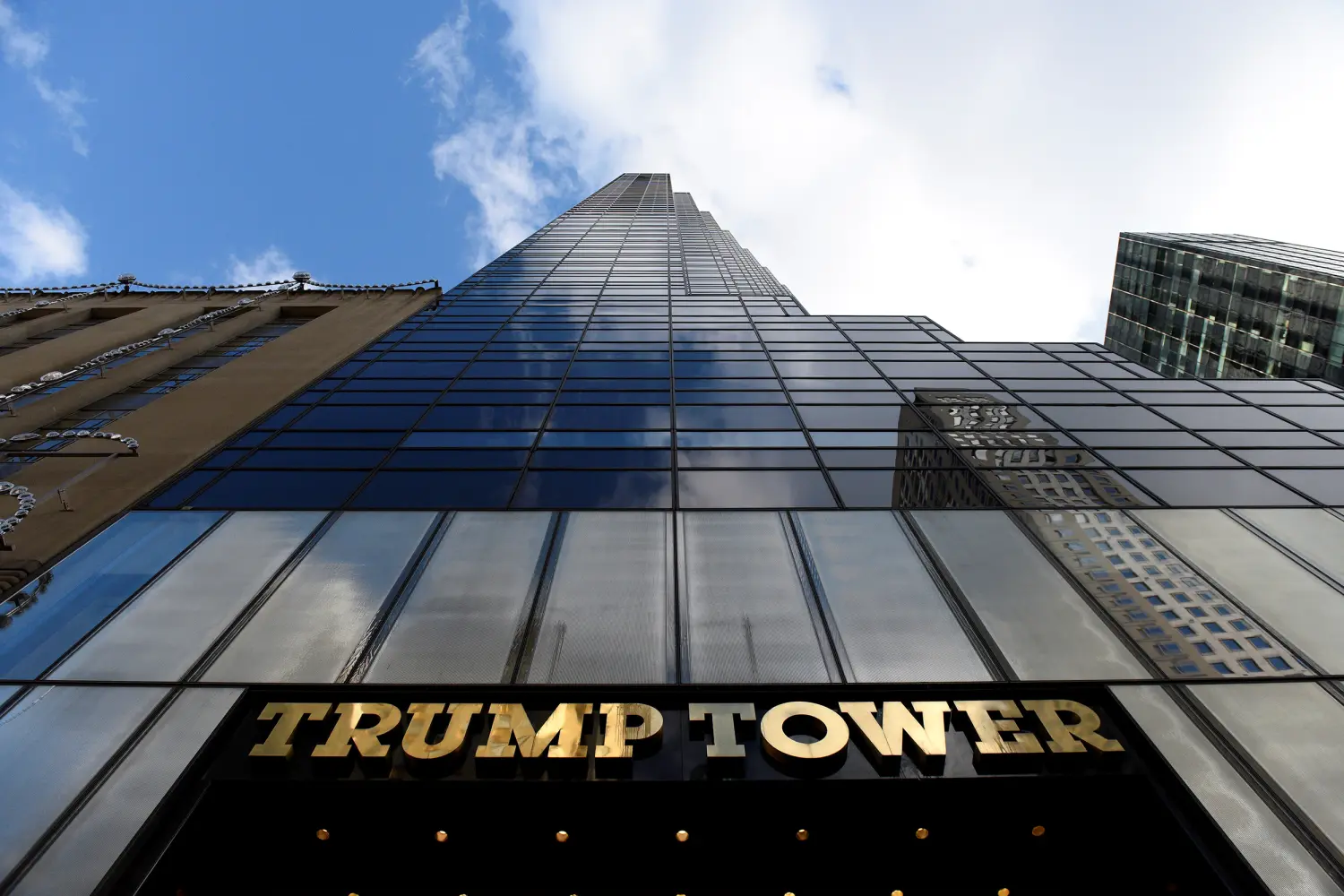As we explain in a new report, “collusion” is not the name of a codified crime.1 Nevertheless, the term has come to be shorthand for the possibility that the Trump campaign, its advisors or the president himself coordinated with Russia to help Trump win the 2016 presidential election. Indeed, Special Counsel Robert Mueller has been authorized to investigate “any links and/or coordination between the Russian government and individuals associated with the campaign of President Donald Trump” and to prosecute federal crimes arising from that investigation.2
The president and his proxies have frequently advanced the claim that such coordination, even if it occurred, would not be unlawful. Their refrain that “collusion is not a crime” is in one sense correct. Collusion is not a single crime. It is instead a rubric that encompasses many possible offenses. We detail some of the principal ones in this report.
All turn on the possibility that Trump or his associates took action in connection with Russia’s attempts to impact the outcome of our country’s presidential election. The criminal nature of the Russian effort is already well-known. The special counsel’s 191 charges brought against 35 individuals and companies spell out some of the crimes allegedly committed in furtherance of the Russian attack on our democracy. Those include indictments of Russian individuals and entities for their participation in conspiracies to hack into the computer and email systems of Trump’s political opponents and release damaging information and to engage in a social media disinformation campaign using fake identities.
It logically follows that if the president or his campaign aides worked with the Russians in connection with those efforts, they too may be liable. That is not just common sense—it is also the law. The specific “collusion” crimes that may be implicated by any coordinated efforts between the president or his campaign aides and Russian operatives principally fall under the rubric of conspiracy: an agreement to further illegal action. The core federal conspiracy statute, 18 U.S.C. § 371, would be implicated if there was any agreement between members of the Trump campaign (or Trump himself) and Russian agents to do something that the law prohibits.
For example, if, in connection with the infamous June 2016 Trump Tower meeting, the Russians and a Trump representative tacitly or explicitly agreed about the release or use of illegally obtained information, that could credibly support a conspiracy charge. In fact, there is already enough evidence of this potential “collusion” crime to warrant a searching review of those events, including the fact that within hours of the Russian offer of “dirt” regarding Hillary Clinton in June 2016, Mr. Trump announced a major speech promising revelations about his opponent.
Another example of a “collusion” crime is conspiracy to defraud the United States, which the special counsel charged against Russian social media propagandists and hackers in a February 2018 indictment. Their cyber-misconduct—which included buying political advertisements on social media and organizing political rallies without revealing their Russian identities—defrauded the U.S. by interfering with our 2016 federal elections. If Trump campaign operatives played a role in these activities—for example, by strategically advising the social media disinformation efforts carried out by Russian operatives, or planning speeches or other campaign events around that disinformation—then the Trump campaign could also plausibly be a part of Russia’s broader conspiracy to defraud the United States.
These kinds of possible campaign encouragement of, or involvement in, illegal Russian activity do not just implicate conspiracy law. Russians have been indicted for violating the Computer Fraud and Abuse Act, and their conduct could potentially implicate the Wiretap Act as well. And even if the campaign did not encourage or direct the Russian hacking, individuals associated with the campaign could still be subject to prosecution for aiding and abetting—in lay terms, helping—a violation of those statutes. Aiding and abetting liability could become a factor if, for example, campaign operatives took action to encourage the Russians to publish or otherwise use the hacked materials.
The criminal statutes that may have been violated by possible “collusion” with Russia do not end there. If the president or his surrogates knowingly accepted something of value from the Russians, such as harmful information about his opponent, that could be an illegal campaign contribution by foreign nationals. That is an election law crime. And if the president accepted that information in exchange for the promise of some future action he or his administration would take if his campaign proved successful (such as taking a more accommodating posture toward the Russian invasion of Ukraine), that could constitute an illegal quid pro quo—that is, bribery. If the Russians only informed the campaign about their plans to disseminate stolen emails after the hacking and the campaign took any steps to conceal the crime, that could constitute the separate criminal offense of misprision of a felony.
Today’s report analyzes six potential offenses that are most likely to be relevant to the special counsel’s investigation of “collusion.” They include:
- Conspiracy to Commit Offense or to Defraud the United States, 18 U.S.C. § 371, (Page 15);
- Computer Fraud and Abuse Act (“CFAA”), 18 U.S.C § 1030,3 (Page 19);
- Federal Wiretap Act, 18 U.S.C. § 2511,4 (Page 22);
- Contributions and Donations by Foreign Nationals, 52 U.S.C. § 30121, (Page 25);
- Bribery of Public Officials and Witnesses, 18 U.S.C. § 201(b)(2), (Page 28); and,
- Misprision of Felony, 18 U.S.C. § 4, (Page 30).
Conspiracy is the most sweeping of these crimes, and it can have as its object the commission of the other crimes enumerated here. But it is a separate and distinct crime that stands on its own. In other words, a person can be guilty of conspiracy even if he does not successfully carry out the conspiracy’s illegal aims.
As with any investigation or prosecution, the law’s reach is informed by the specific facts. Certain crimes may not ultimately be substantiated in light of what took place, while others may be conclusively shown to have occurred. There are nuances to the applicability of each of the statutes discussed below that will depend on facts yet to be disclosed, and with more information additional crimes may also be revealed.
This list is also only a selection of the potential criminal collusion that may be implicated by the Trump campaign’s role in the Russian interference in the 2016 election. There is of course the possible cover-up of any collusion, which implicates a host of additional crimes such as obstruction of justice and perjury.
In short, any suggestion that “collusion is not a crime” is false. While there may not yet be definitive proof that the Trump campaign or its associates engaged in criminal collusion with Russia, there are legitimate questions regarding whether the president and those close to him worked with or alongside the Russians in their efforts to interfere in the 2016 presidential election, questions that demand answers. The American people have a fundamental right to know if the president of the United States or those close to him worked with Russia to win the election and undermine American democracy—in violation of our criminal law.
Note: CREW is a party in active litigation involving President Trump and the administration and Barry Berke and Kramer Levin are outside pro bono counsel to CREW. The authors have no other relevant interests to disclose.
-
Footnotes
- The president himself has invoked the term to suggest various wrongdoing by opponents. For example, when then‑presidential candidate Ted Cruz formed an alliance with other Republican presidential candidates in the final days of their campaigns, then-candidate Trump accused them of “collusion.” See, e.g., Alexander Burns, Matt Flegenheimer, Jonathan Martin and Molly Ball, Ted Cruz-John Kasich Alliance Against Donald Trump Quickly Weakens, New York Times, Apr. 25, 2016, https://www.nytimes.com/2016/04/26/us/politics/ted-cruz-john-kasich-donald-trump.html. Trump also invoked the term to suggest that the FBI, Department of Justice, and Department of State ‘colluded’ to “make Hillary Clinton look like an innocent person when she’s guilty of very high crimes.” Glenn Kessler, Trump’s Claim of ‘Collusion’ by the FBI and State to Make Hillary Clinton ‘Look Less Guilty’, Washington Post, Oct. 19, 2016, https://www.washingtonpost.com/news/fact-checker/wp/2016/10/19/trumps-claim-of-collusion-by-the-fbi-and-state-to-make-hillary-clinton-look-less-guilty/?utm_term=.7033b06daf49.
- Rod Rosenstein, Order No. 3915-2017, Office of the Deputy Attorney General, May 17, 2017, https://www.justice.gov/opa/press-release/file/967231/download.
- The Computer Fraud and Abuse Act of 1986 amended an existing computer fraud statute codified at 18 U.S.C § 1030. Consistent with common practice, for purposes of this report we refer to 18 U.S.C § 1030 as the CFAA.
- The Wiretap Act is codified at 18 U.S.C. §§ 2510–2522. For purposes of this report we refer to section 2511, which contains the Act’s criminal prohibition on unauthorized interceptions of communications, as the Wiretap Act.






